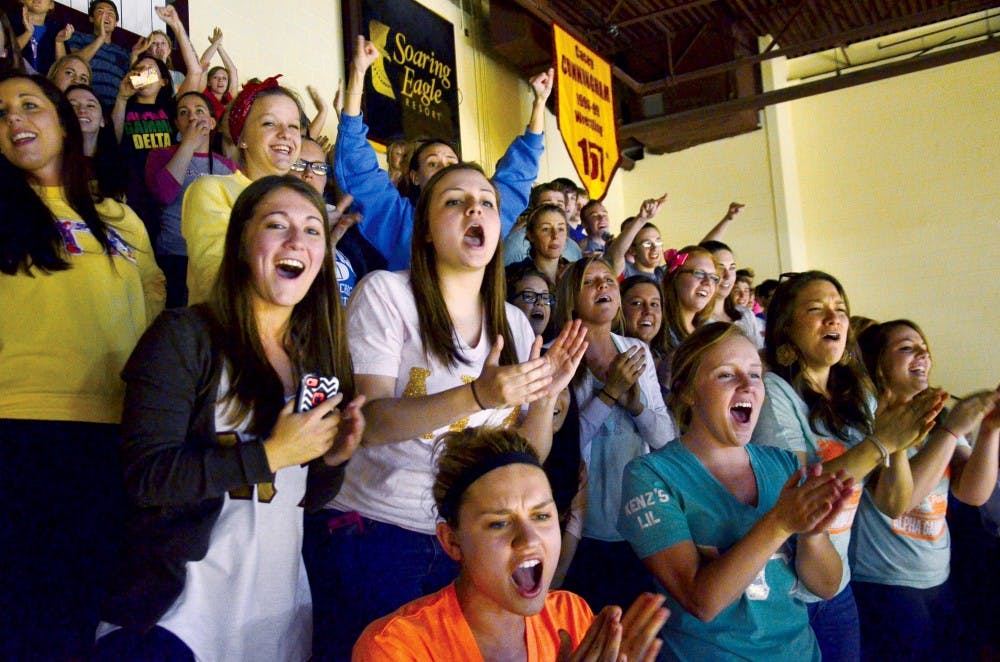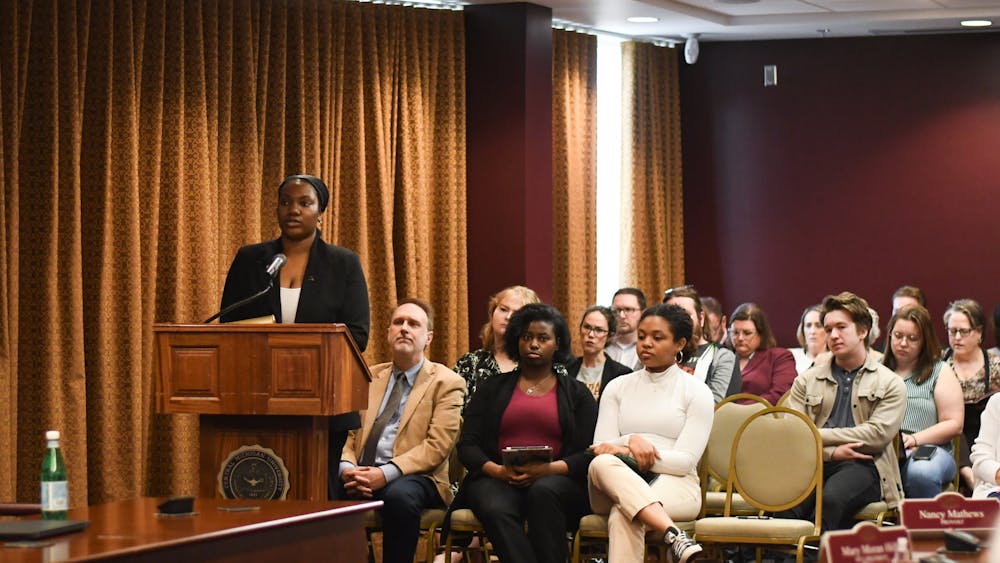Recruitment week: What it means to go Greek

With recruitment week approaching, members of Greek Life are preparing for an exciting season to gain new members for their fraternities and sororities.
Joining a fraternity and sorority can offer many benefits for students at CMU. Almost every student on campus has heard of the phrase, “Going Greek,” but many still wonder what it means to them.
“Being Greek is being a part of something bigger than yourself,” said Mackenzie Woodman, Alpha Gamma Delta member and Freeland senior. “As a whole, we strive to better our community, our campus and each other.”
Going Greek gives students an opportunity to make lifelong friends, gain leadership roles and help out the local community. Greek Life plays a huge role in philanthropy spread across a variety of charities.
“Philanthropy is the desire to promote the welfare of others expressed especially by the generous donation of monetary value and community service to others,” Woodman said. “Alpha Gamma Delta is involved specifically in diabetes research. We host our semi-annual Taco Dinner every semester and all of the proceeds go towards the Alpha Gamma Delta foundation.”
At Greek Week during the 2014 spring semester, the community raised $30,075 for Special Olympics Michigan.
“Philanthropy is just one of many things that attracts people to Greek life,” said Interfraternity Council President David McCatty. “Being Greek means being part of something bigger than yourself. As a freshman, you don’t see how big it all is. Then you join Greek life and it all comes together.”
The prevalence of Greek life can be seen in every classroom as there is usually at least one person in the class wearing Greek letters regardless of the fact that less than 5 percent of the student population is in the community.
“I disagree when people say Greek life isn’t for everyone,” McCatty said. “Not all Greek houses are the same. They each have their own values, codes and opportunities for whatever a student is interested in, from community service, to social networking to being part of a family that spans the nation.”
Recruitment involves learning about all of the sororities and fraternities on campus to help students decide where they would best fit in. There is a mutual selection process between sororities and the girls as well as fraternities and the boys.
This year’s sorority recruitment will be broken up into two weekends. The first is the weekend of Sept. 19, and Sept. 26 is the second. This year’s fraternity recruitment will be the week of Sept. 8.
“Recruitment is structured so that every woman has an opportunity to visit every house,” said National Panhellenic Council President Veronica Meadows. “Each house has a set time to see people for a dedicated amount of time. It’s our job to help them find their homes.”
During recruitment week for fraternities, students visit a fraternity during events throughout the week to get a feel for the organization, leaving contact information with the fraternity’s recruitment official.
“We are in a culture that sees the Greek life as bad thanks to popular movies,” said Matt Berlin, Millington senior and president of Pi Kappa Phi. “Sure the movies are entertaining, but they don’t show the good the community does for charities. Not many people would be interested in watching a two-hour film about the philanthropy we do.”
Each day covers a specific aspect of each sorority and fraternity. The first day covers general information about each fraternity and sorority and going Greek. As days go on, students can learn more about what each fraternity and sorority stands for and what is important.
“Greek Life has expanded enormously over the years,” Woodman said. “It has created the opportunity for young college students to get involved in a way that will help better their future and teach them the importance of giving back to their community.”
Senior reporter Nathan Clark contributed notes to this story.




